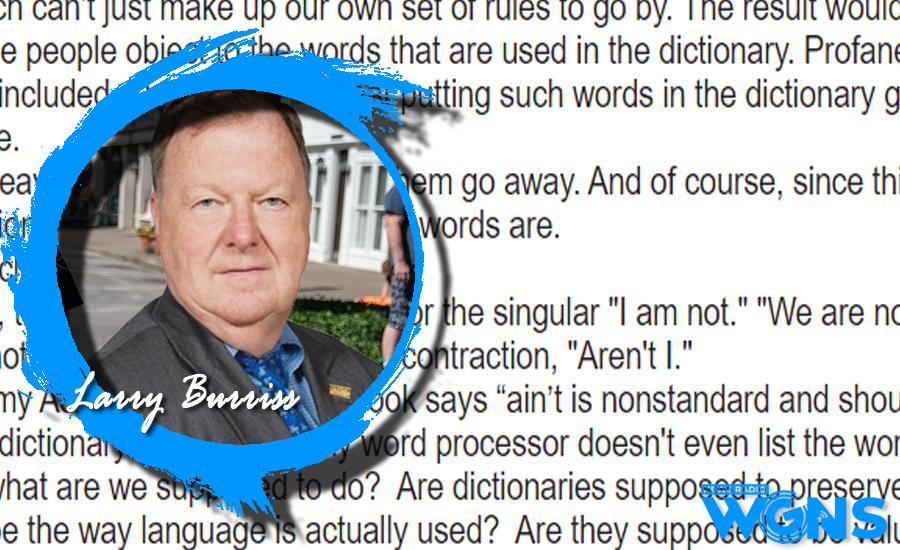The pros and cons to the American language - - or perhaps the right and wrong? With more on this subject, here is MTSU professor Larry Burriss...
Purists insist there are standards that must be maintained at all costs. What they don't often seem to realize, however, is that the standards change. The definitions of words change, and even the acceptability of certain words change.
Even a cursory look at the writings of William Shakespeare, considered by many to be the pre-eminent master of the language, will reveal slang, changes in meaning and even words that are no longer acceptable, or used, in polite society.
But at the same time, if standards of usage are not maintained, how will we be able to communicate with each other? We each can't just make up our own set of rules to go by. The result would be total confusion.
Some people object to the words that are used in the dictionary. Profane and obscene words, some people say, should not be included. Opponents say that putting such words in the dictionary gives them some kind of legitimacy they do not deserve.
But leaving them out won't make them go away. And of course, since this is a radio station governed by federal regulations, I can't tell you what those words are.
The classic case is the word "ain't."
Now, there is no good contraction for the singular "I am not." "We are not," of course, is "We aren't." And the phrase "Am I not," although awkward, has a contraction, "Aren't I."
But my Associated Press Stylebook says “ain’t is nonstandard and should not be used.
The dictionary that's part of my word processor doesn't even list the word.
So what are we supposed to do? Are dictionaries supposed to preserve the status quo? Are they supposed to describe the way language is actually used? Are they supposed to be value neutral?
Well, let me say this about that. I ain't got no idea. - I'm Larry Burriss"
About Dr. Burriss
Larry Burriss, professor of journalism, teaches introductory and media law courses. At the graduate level he teaches quantitative research methods and media law. He holds degrees from The Ohio State University (B.A. in broadcast journalism, M.A. in journalism), the University of Oklahoma (M.A. in human relations), Ohio University (Ph.D. in journalism) and Concord Law School (J.D.). He has worked in print and broadcast news and public relations, and has published extensively in both academic and popular publications. He has won first place in the Tennessee Associated Press Radio Contest nine times. Dr. Burriss' publications and presentations include studies of presidential press conferences, NASA photography, radio news, legal issues related to adolescent use of social networking sites, legal research, and Middle Earth.
Dr. Burriss has served as director of the School of Journalism, dean of the College of Mass Communication and president of the MTSU Faculty Senate. He was appointed by Gov. Phil Bredesen to serve on the Tennessee Board of Regents. He was a lieutenant colonel in the U.S. Air Force and served on active duty in Mali, Somalia, Bosnia, Central America, Europe and the Pentagon.





